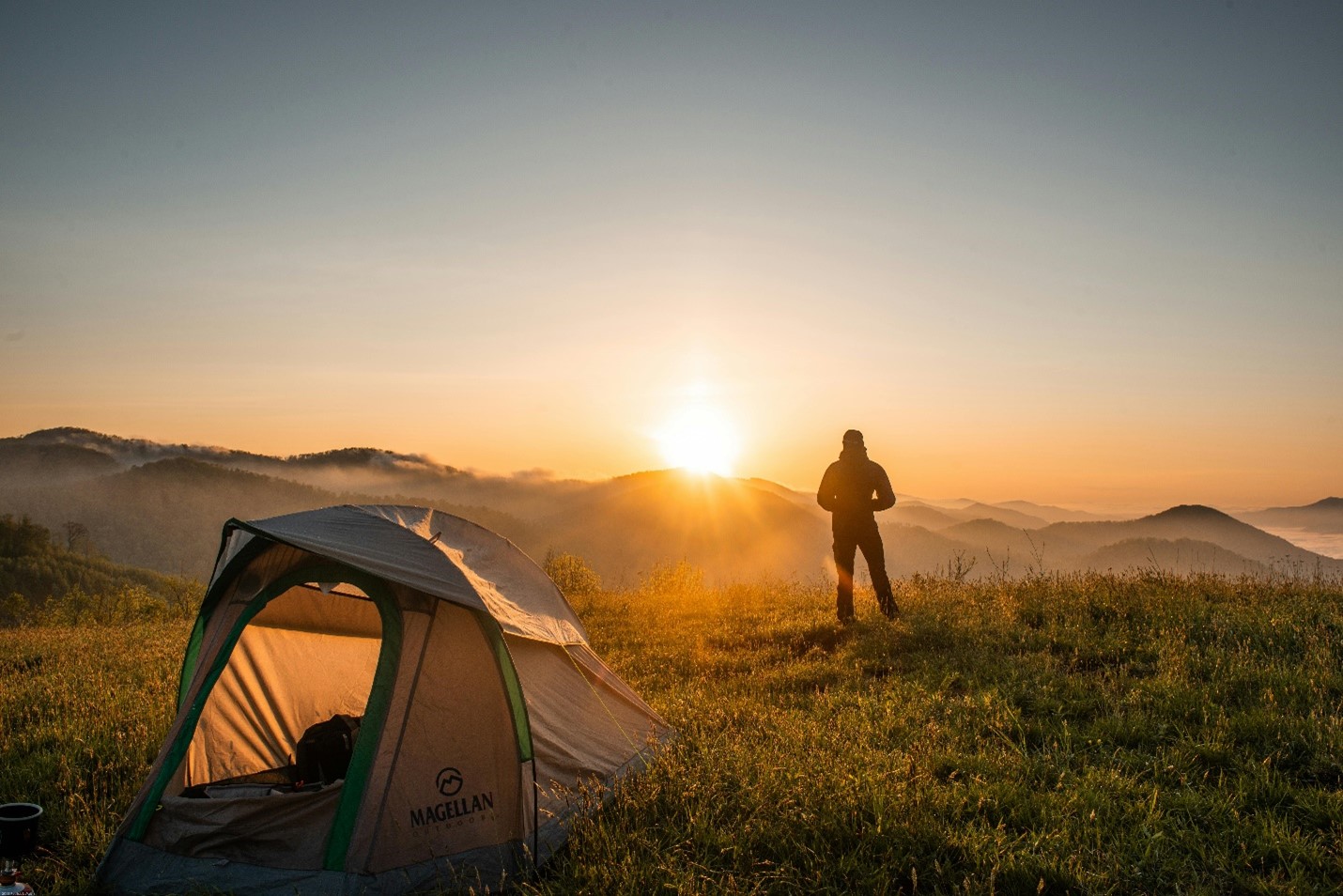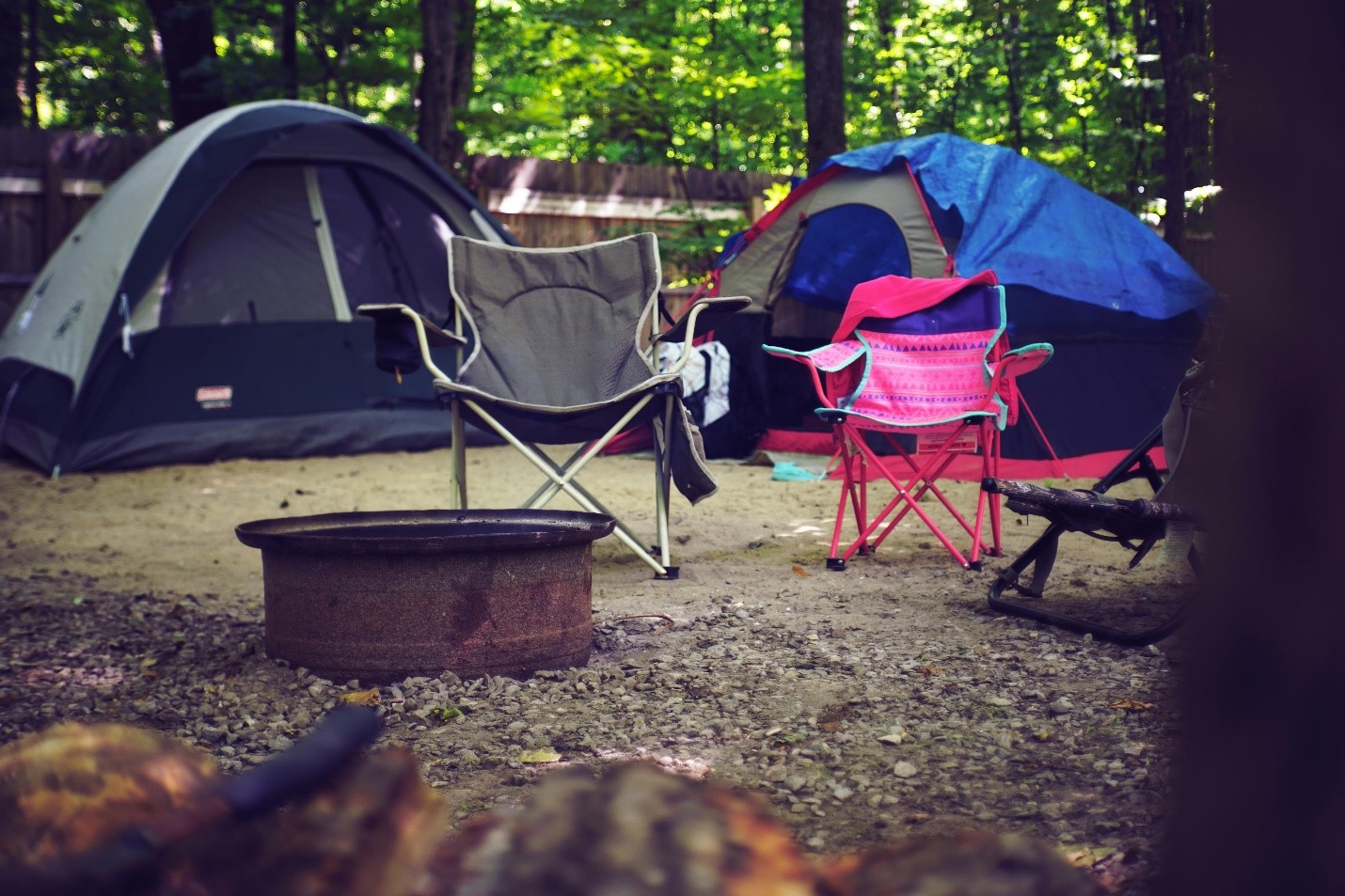Top Tips for Camping on a Shoestring Budget

Camping holds a sense of magic. You have the opportunity to rest beneath the stars in a stunning setting with fantastic individuals—and maybe even some beer. No morning could be better than waki ng up on top of a mountain with a cup of warm tea and my dog by my side (taking in the same breathtaking views as shown in the picture). However, these perspectives may come with a high price tag. What I'm trying to say is that camping can be costly and, to be honest, inaccessible. However, it must not be! I am present to offer assistance.
You may be wondering, Hannah, we are interested in camping and hiking, but we are feeling overwhelmed by the high costs of all the equipment. How can we experience nature without breaking the bank? Yes, that is precisely what I told myself. This is what worked for me, where I saved money and the products I recommend for a budget-friendly lifestyle.
An essential way to save money in any situation is to establish a budget! A spending plan will assist you in determining the amount of money you need to set aside for your trip, whether it is for big purchases like a tent or everyday expenses like gasoline. It saves you money that you can use to work with a UK writer on your assignments.
Before selecting a campsite, the potential camper must also consider factors ranging from how many days there are to be camping, how many people are going, and what kinds of experiences are most desired. Make sure that all the aspects listed in the camping budget and extra money are provided, especially in unfavorable weather conditions.
It pertains to the cost required to spend a night at a campsite. The cost of resting in camps typically depends on the services offered as well as the location of the camps; however, most of the camps require a fee to be paid. Some of them, such as the primitive site, may not charge very many dollars, or some may not charge at all. However, many other sites offer different services, and such sites might cost a fortune for a single-night stay.
In your budget, you also need to consider the cost of nutrition and hydration. Make sure to bring sufficient food and water for your entire journey, including purchasing groceries, preparing a cooler, and bringing a water purification system. Remember to account for the cost of ice when bringing a cooler to keep your perishable items cold. Remember, the budget should ensure that you focus on necessities and don't go through the nasty inconvenience of running out of supplies.
Your camping knowledge will determine if you should buy or hire gear like a tent, sleeping bags, cookware, and a camp stove. This also depends on the type of camping you intend to do, as there are numerous camping trips available in your region to choose from. For example, there is a significant contrast in the items required for through-hiking compared to the equipment needed for glamping.
Camping equipment comes with a high price tag! You can choose to lease, borrow, or buy camping equipment. Investing in camping equipment may not be practical if you only intend to go camping once or twice this summer. You can either rent, borrow, or purchase camping gear such as tents, sleeping bags/air mattresses, and chairs because the expenses can accumulate fast. Instead, inquire with a family member, friend, or neighbor about cautiously borrowing their equipment. This is a great idea, and it is not just for people who don't camp.
Consult a friend to ask if you could borrow their gear. This way, you save money and get to test your gear early before the actual excursion. There is also the option to purchase preowned gear. Remember, used equipment could be equally as effective or even superior to items that are fresh off the shelf! Second-hand equipment has been exposed to weather conditions before, and if you consider it to be in good condition, then you can be confident that it will be durable for outdoor use. If you'e looking to purchase new gear, consider buying used items first to save money until you are certain about your preferences. Purchasing used items can also help you save enough money for your new arrangement.
Places in national parks and popular coastal resorts tend to be pricier, so consider exploring surrounding lesser-known regions. For instance, when planning a trip, consider choosing campsites located inland instead of near the coast. Alternatively, if Pembrokeshire is too pricy, consider looking at nearby areas instead. Some research can be very beneficial, especially when looking to avoid crowded locations during your trip. To reduce the risk of getting stuck in crowds of tourists, avoid traveling during the busy summer holiday period in December and January, as well as school holidays, and opt for off-peak seasons instead. Consult Google to determine the peak hours for well-liked attractions and explore off- the-beaten-path sights.

We all enjoy new shiny items, but our finances may not allow it! Every day, new products are introduced into the market, leading you to consider replacing your potentially 5-year-old setup with a fresh one. If it isn't broken, there's no need to repair it! If your current arrangement is still working effectively and is in good shape, continue to use it. Your finances will appreciate it in the future. When choosing gear, consider visiting second-hand stores for different shopping options. If you need help with assignments, read this royalwriter review for insights on how to find the best professionals.
Prepare your meals in advance to cut costs and get your food ready before your camping trip. Planning and preparing your meals before leaving the house is the best way to avoid having excess food or not enough food for the trip, which may result in having to find a grocery store or restaurant. Create a schedule for your meals and snacks each day, jot down a thorough list of groceries you require, and then cook and prepare your meals in advance for future time-saving. As you likely know already, meat comes with a high price tag. Cut costs on your camping trip by consuming more fruits and vegetables along with non-perishable items, and then experiment with meal ideas.
Here, we have highlighted a few camping tips for those working with the right budgets. Plan a camping trip with friends or family and save money by dividing tasks, sharing gear, and coordinating meals. Share out camping gear and essentials to prevent excessive purchases or packing. Camping tends to be more enjoyable when you have less responsibility to take care of!